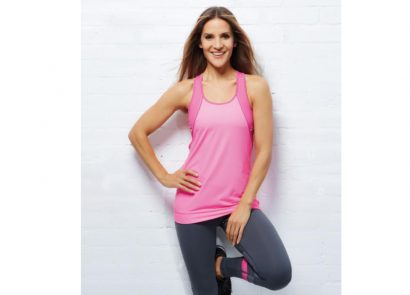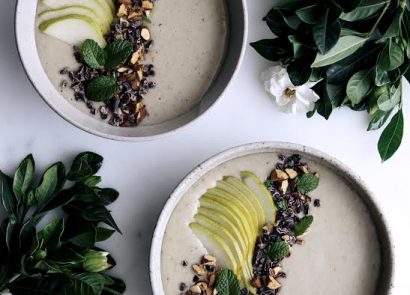Do you want to be kinder to the environment but you’re not sure how? Here are seven simple ways to be a bit friendlier to the environment and world we share together.
-
-
1. Jog on
- Why not feed two birds with one scone by getting fit while you help the planet? “An environmentally-friendly fitness activity from Sweden has been adopted by thousands of Europeans. That activity is… Plogging. A combination of the Swedish ‘plocka upp’ (meaning ‘pick up’) and ‘jogging’. In other words, people will pick up litter while they run,” explains Frida Harju-Westman, nutritionist at health app Lifesum (lifesum.com). “The activity is designed to generate exercise benefits from what might otherwise be considered an unglamorous public service.” The new craze will help both the growing environmental concerns about litter and rising obesity rates in many countries, including our own.
-
-
-
2. Pack it in
- The 5p charge for all single-use plastic carrier bags has paved the way in changing how we approach the weekly shop but that’s only the start. Reducing food packaging waste is next on the list. “The government is considering additional taxes aimed at polystyrene and other single-use plastics to encourage businesses to seek environmentally-friendly solutions. So don’t be afraid to ask if your favourite shops or takeaway restaurants use recyclable or compostable packaging,” says John Haken, director at WF Denny, specialists in biodegradable packaging (wfdenny.co.uk). “Make sure they’re using card boxes, compostable bagasse boxes and paper bags instead of polystyrene and plastic bags.”
-
-
-
3. Keep shopping sustainable
- John also recommends a sustainable approach to shopping. “Choose items packaged in cardboard, foil or recyclable plastics where possible. Be sure to check the recycling information. This will advise you of the materials used and their recyclability. When buying fresh fruit and vegetables, try choosing loose items without the extra packaging. Teabags, although being made of 70-80 percent paper fibre, are not actually fully compostable. The remainder comprises a heat-resistant polypropylene mesh. And if that wasn’t incentive enough for you, making the switch to loose leaf tea could also save you money!”
-
-
-
4. Use your voice
- “Many businesses aren’t forthcoming about their practices,” says Alessandro Rocchi, founder of Georganics oral care brand (georganics.co.uk). “Even those that brand themselves as ethical and sustainable aren’t necessarily so. If you can’t find the information you’re looking for on their website, get in contact over email, phone or social media. If they’ve got nothing to hide, they’ll be happy to address your concerns. Also, by supporting small, local and independent businesses, has made it a lot easier to live more ethically. There are usually fewer links in the supply chain. This means companies usually work directly with factories and suppliers and are able to monitor standards. Shopping locally also helps cut down on air and road miles, too.”
-
-
-
5. Have a green cycle
- You can’t avoid your period but you can make it more eco-friendly. The average woman uses up to 12,000 tampons and applicators in a lifetime, according to Fast Company (fastcompany.com). “Non-organic tampons, pads and liners contain materials which can damage the environment,” says Fee Bassett from sustainable period care brand Time Of The Month (totm.com).
- “Alongside conventional cotton, which is farmed with toxic pesticides, and rayon (a man-made fibre), they also contain a significant amount of plastic in the finished product and packaging. These are products that we use on a regular basis, so you can imagine how this affects the planet over time. The good news is that there are more and more eco-friendly period care products now widely available. This includes organic cotton products that are biodegradable, so they break down naturally in landfill after disposal. TOTM’s organic range uses sustainable alternatives wherever possible, using cardboard applicators in place of plastic and cornstarch biofilm wrappers on menstrual pads. Together with these eco-friendly disposable options, there are also reusable period care products. Menstrual cups, for example, are a zero-waste option and directly replace tampons. With any of these products, it’s important to find what works best for you!”
-
-
-
6. Style it out
- Ethics and aesthetics are married together as fashion goes green. “Shockingly, an estimated 640,000 tonnes of fishing nets are dumped in oceans every year, representing one of the greatest threats to marine life. That’s why the majority of our swimwear is made from regenerated nylon coming from pre and post-consumer waste,” says Kylie Ronalds, founder of Natatio swimwear (natatioswimwear.com).
- “We know that using regenerated nylon has multiple advantages – it removes waste from the environment and the production process saves the extraction of more crude oil to generate new synthetic fibre. In turn, this lowers CO2 emissions and energy requirements. The end result is a fabric which is twice as resistant to chlorine, meaning that it will last longer. We firmly believe that one way to be more eco-friendly is to carefully consider fast fashion choices and look for a brand which uses sustainable fabric. Remember to buy once and buy well.” Other eco-friendly fashion brands H&W recommends are People Tree (peopletree.co.uk), Manduka (manduka.com) and Asquith (asquithlondon.com).
-
-
-
7. Brush with bamboo
- The average person will use and throw away 300 plastic toothbrushes over a lifetime. And billions end up in the ocean and landfill every year. To combat this, The Pearly White Club (£32 for a 12-month subscription, pearlywhiteclub.co.uk) set up the first bamboo toothbrush subscription service. The company sends out a new toothbrush every six weeks with a compostable bamboo handle and ecofriendly packaging. Its research found that plastic toothbrushes in landfills take thousands of years to decompose. They also leak toxins into the ground that harm wildlife and potentially human health whilst they decompose. Similarly, our oceans are also at risk. Toothbrushes can end up in an animal’s stomach, contributing to its death or simply litter our beaches all around the world.
- As such, bamboo toothbrushes are a great alternative. The handle will decompose over a short period of time in landfill (one to two years max). They are made from a plant and don’t have any harmful toxins. As a result, once decomposed they return to nature. Whilst in the ocean, they will rot in the way that driftwood does over time.
-
Even one of these changes will help the environment, so why not try one? Be a friend to the environment!




















